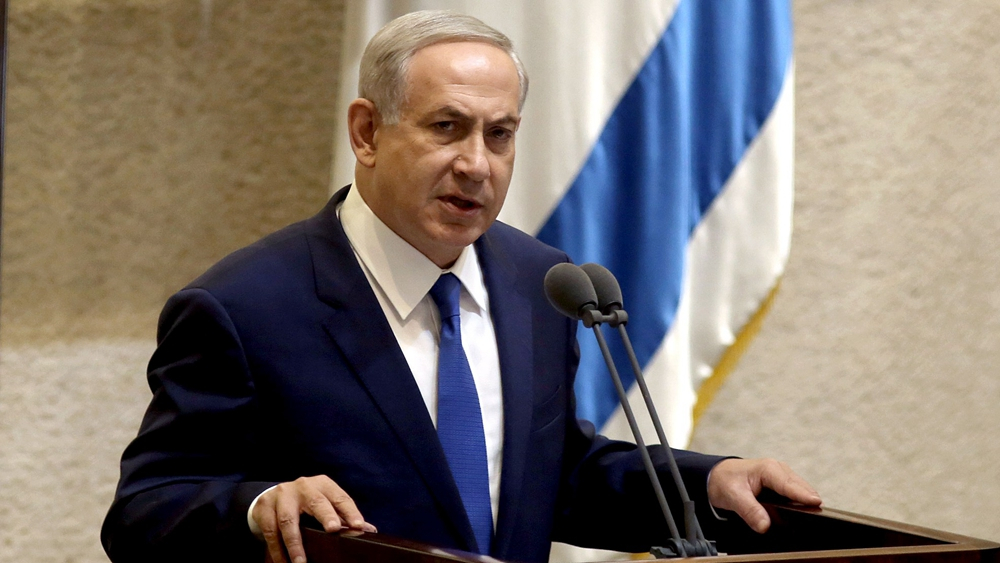
World
10:53, 19-Nov-2018
Israel avoids snap elections as key minister stays
Updated
09:57, 22-Nov-2018
CGTN

Israeli Prime Minister Benjamin Netanyahu's government survived a possible collapse on Monday, after a key minister withdrew a threat to leave the coalition despite disagreements.
Education Minister Naftali Bennett, who leads the Jewish Home party, had previously threatened to quit Netanyahu's coalition if he was not named defense minister.
Netanyahu refused to give the job to Bennett and the prime minister has assumed the position himself for the time being.
The resignation of the defense minister threw Netanyahu's government into a crisis that threatened to topple him and provoke snap polls.
Defense Minister Avigdor Lieberman's resignation, announced on Wednesday over what he described as the government's lenient policy towards an upsurge of cross-border violence with Palestinian militants in the Gaza Strip, left the government with a majority of only one seat in parliament.
That put the fate of Netanyahu's coalition at the mercy of its partners, who have seen the four-term prime minister's popularity take a rare hit in an opinion poll showing Israelis were unhappy with him over Gaza.

Israelis take part in a protest against the ceasefire with Gaza's rulers Hamas, in Tel Aviv, November 15, 2018. /VCG Photo
Israelis take part in a protest against the ceasefire with Gaza's rulers Hamas, in Tel Aviv, November 15, 2018. /VCG Photo
Earlier, Netanyahu met with his finance minister Moshe Kahlon, who has urged setting an early election date.
Kahlon said on Saturday that governing with a one-seat majority was unsustainable.
Netanyahu's re-election chances could also be affected by a series of corruption cases against him.
An election would complicate promised moves by the United States toward reviving Israeli-Palestinian peace efforts that collapsed in 2014. The Trump administration has said it would unveil a peace plan soon.
Bennett, whose far-right party holds eight seats in parliament, acknowledged the backlash he may face for backing down from the earlier ultimatum.
"It's better that the prime minister beats me in a political battle than [Hamas leader Ismail] Haniya beats Israel," he said.

Israeli Education Minister Naftali Bennett and Justice Minister Ayelet Shaked deliver statements to the media in Jerusalem, November 19, 2018. /VCG Photo
Israeli Education Minister Naftali Bennett and Justice Minister Ayelet Shaked deliver statements to the media in Jerusalem, November 19, 2018. /VCG Photo
Bennett's comments followed an impassioned address to the nation on Sunday night by Netanyahu, who said he would retain the defense portfolio for now and seek to convince coalition partners to remain in the government.
He said calling early elections now would be "irresponsible" due to what he described as a complicated security situation facing the country.
Hitting back at criticism of his decision to accept a ceasefire with Gaza's rulers Hamas, Netanyahu dropped heavy hints about a future Israeli military offensive.
"We have an entire year until the election. We are in the midst of a campaign and you don't pull out in the middle of a campaign or play politics. State security is beyond politics," he said. "I will not say this evening when we will act and how. I have a clear plan. I know what to do and when to do it. And we will do it."

A residential neighborhood in Gaza City following Israeli air strikes targeting the area overnight, November 13, 2018. /VCG Photo
A residential neighborhood in Gaza City following Israeli air strikes targeting the area overnight, November 13, 2018. /VCG Photo
But Lieberman labelled the ceasefire "capitulating to terror" when he resigned on Wednesday and Bennett says he disagreed with it as well.
Last week, Hamas fired more than 400 rockets and mortars at Israel, while the IDF retaliated by sending its warplanes to bomb around a hundred sites in Gaza.
Israeli residents hit by barrages of rockets from Gaza have also protested, calling for tough action against Hamas, the organization Israel has fought three wars against since 2008.
Source(s): AFP
,Reuters

SITEMAP
Copyright © 2018 CGTN. Beijing ICP prepared NO.16065310-3
Copyright © 2018 CGTN. Beijing ICP prepared NO.16065310-3